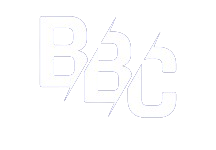In the dynamic world of finance, where decisions carry significant weight and ramifications, integrity stands as the cornerstone of trust. The CMA Course serves as a guiding light, illuminating the path toward ethical conduct and professionalism in financial management. This comprehensive exploration delves into the essence of CMA ethics and professionalism, elucidating their profound significance in the realm of finance.
Unraveling the CMA Course
The CMA course, administered by the Institute of Management Accountants (IMA), is a rigorous program designed to equip professionals with the expertise and ethical framework essential for success in management accounting. Encompassing a wide array of subjects, including financial planning, analysis, and decision support, the course instills not only technical prowess but also a deep-rooted commitment to ethical conduct and professionalism.
A Commitment to Ethical Principles
Ethics lie at the heart of the CMA course Duration permeating every facet of its curriculum. CMAs are expected to uphold the highest standards of ethical conduct, guided by principles such as integrity, objectivity, competence, and confidentiality. These principles serve as guiding beacons, navigating professionals through complex ethical dilemmas and ensuring that their decisions are grounded in ethical integrity.
Embracing Professionalism
Professionalism is the bedrock upon which CMAs build their careers. Beyond technical proficiency, CMAs exhibit exemplary behavior and demeanor in their professional interactions. They demonstrate accountability, responsibility, and respect for their colleagues, clients, and the broader community. Professionalism is not just a set of skills; it is a way of life for CMAs, influencing how they engage with stakeholders and contribute to the advancement of their profession.
The Significance of CMA Ethics
Ethical conduct is not merely a moral imperative; it is a strategic advantage in the finance industry. CMAs who prioritize ethics are more likely to earn the trust and confidence of stakeholders, fostering enduring relationships and sustainable business practices. Moreover, adherence to ethical standards mitigates the risk of financial misconduct and legal repercussions, safeguarding the reputation and integrity of individuals and organizations alike.
Upholding Integrity in Financial Reporting
One of the critical domains where CMA ethics come into play is financial reporting. CMAs are entrusted with the responsibility of preparing accurate and transparent financial statements that reflect the true financial position of an organization. By adhering to ethical principles such as objectivity and integrity, CMAs ensure that financial information is not manipulated or misrepresented for personal gain or to deceive stakeholders. This commitment to integrity promotes investor confidence and contributes to the stability of financial markets.
Ethical Decision-Making in Management Accounting
In the realm of management accounting, CMAs often encounter ethical dilemmas that require careful consideration and principled decision-making. Whether it’s allocating costs, setting performance targets, or disclosing sensitive information, CMAs must navigate these challenges with integrity and professionalism. By evaluating the ethical implications of their actions and consulting ethical guidelines, CMAs can make decisions that uphold the interests of their organizations and stakeholders while maintaining their ethical integrity.
What role do ethics play in the CMA course?
Ethics are central to the CMA course, shaping the behavior and decision-making of aspiring management accountants. By instilling ethical principles such as integrity, objectivity, and confidentiality, the CMA course prepares professionals to navigate complex ethical dilemmas and uphold the highest standards of ethical conduct in their careers.
How does professionalism contribute to the credibility of CMAs?
Professionalism is a hallmark of CMAs, signaling their commitment to excellence and integrity in their professional endeavors. By demonstrating accountability, responsibility, and respect in their interactions, CMAs enhance their credibility and earn the trust of stakeholders, thereby bolstering the reputation of the profession as a whole.
What are some common ethical challenges faced by CMAs?
CMAs often encounter ethical challenges related to financial reporting, budgeting, and performance evaluation. These challenges may involve conflicts of interest, confidentiality breaches, or pressure to compromise ethical standards for short-term gains. By addressing these challenges with integrity and professionalism, CMAs can uphold the trust and integrity of the profession.
How does the CMA course prepare candidates to navigate ethical dilemmas?
The CMA course includes comprehensive training on ethical decision-making, providing candidates with the tools and frameworks to analyze ethical dilemmas and make principled decisions. Through case studies, simulations, and ethical guidelines, candidates learn to identify ethical issues, evaluate alternative courses of action, and uphold ethical standards in their professional practice.
What resources are available to CMAs to support their adherence to ethical standards?
CMAs have access to a wealth of resources to support their adherence to ethical standards, including the IMA’s Code of Ethics, ethical guidelines from regulatory bodies, and professional development programs focused on ethics and professionalism. Additionally, CMAs can seek guidance from mentors, colleagues, and ethical hotlines to navigate challenging ethical situations and uphold the integrity of the profession.
Conclusion
In the ever-evolving landscape of finance, integrity is non-negotiable. The CMA course stands as a beacon of ethics and professionalism, equipping aspiring management accountants with the knowledge, skills, and principles to uphold integrity in their professional endeavors. By embracing ethical conduct and demonstrating professionalism, CMAs not only enhance their own credibility but also contribute to the stability and trustworthiness of the finance industry.









